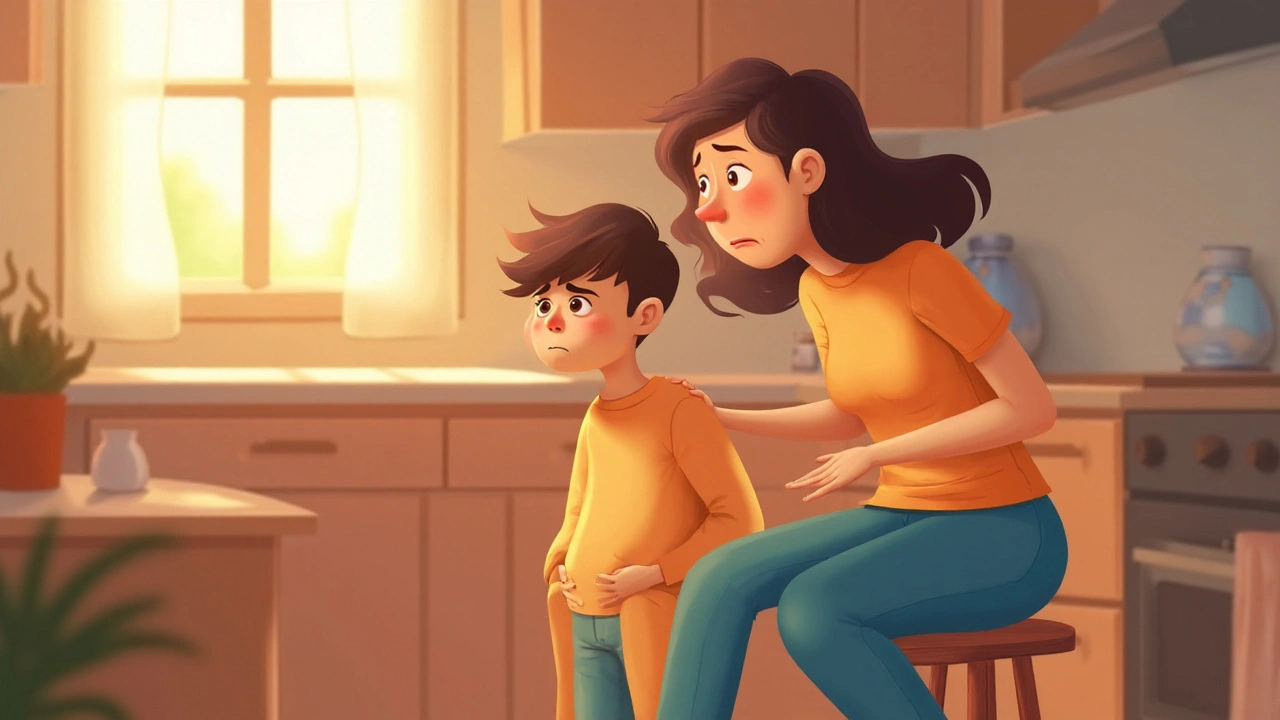Pediatric Crohn's Symptoms: What Parents Should Watch For
Seeing your child complain about stomach pain or feeling tired can be worrying. Sometimes those complaints point to Crohn's disease, a condition that inflames the gut. Knowing the most common signs helps you act fast and get the right care.
Typical Signs Kids Show
Most children with Crohn's have a mix of stomach and overall symptoms. Common clues include:
- Recurring abdominal pain, especially after meals.
- Loose stools or diarrhea that may contain blood.
- Unexplained weight loss or trouble gaining weight.
- Feeling tired even after a good night’s sleep.
- Fever that comes and goes without an obvious infection.
If you notice two or more of these issues persisting for several weeks, it’s worth talking to a pediatrician.
When the Gut Affects Growth
Because Crohn's attacks the intestines, it can mess with nutrient absorption. This often shows up as slower growth or delayed puberty. Parents may hear their child say they’re “not getting bigger” or see a drop in school performance due to low energy.
Doctors usually check height, weight, and growth charts during regular visits. A sudden dip on those charts can be a red flag that something deeper is going on.
Other less obvious signs include mouth ulcers, joint pain, and skin rashes. These extra‑intestinal symptoms happen because the inflammation can spread beyond the gut.
If your child has any of these, keep a symptom diary. Note when the pain starts, what foods were eaten, and how the stool looks. This information makes it easier for doctors to spot a pattern.
When you bring your child in, the pediatrician may order blood tests, stool tests, and a quick imaging scan. In many cases, a colonoscopy confirms the diagnosis. It sounds scary, but the procedure is done under sedation and gives a clear picture of what’s happening inside.
Once Crohn's is confirmed, treatment usually starts with medicines that calm the inflammation. Some kids respond well to antibiotics or steroids, while others need stronger immune‑modulating drugs. Nutrition advice is also part of the plan—sometimes a special diet helps reduce flare‑ups.
Even with medication, flare‑ups can happen. Typical triggers include stress, certain foods, and infections. Watching for early warning signs—like a sudden return of abdominal pain—lets you act before a full‑blown episode.
Bottom line: Trust your gut instincts as a parent. If your child’s stomach issues feel out of the ordinary, don’t wait. Early detection of pediatric Crohn's can keep your child healthy, growing, and feeling like themselves again.

Crohn's Disease in Children: How to Spot Symptoms and Get Treatment
Learn how to recognize Crohn's disease signs in kids, understand diagnostic steps, explore treatment options, and know when to seek specialist help.
